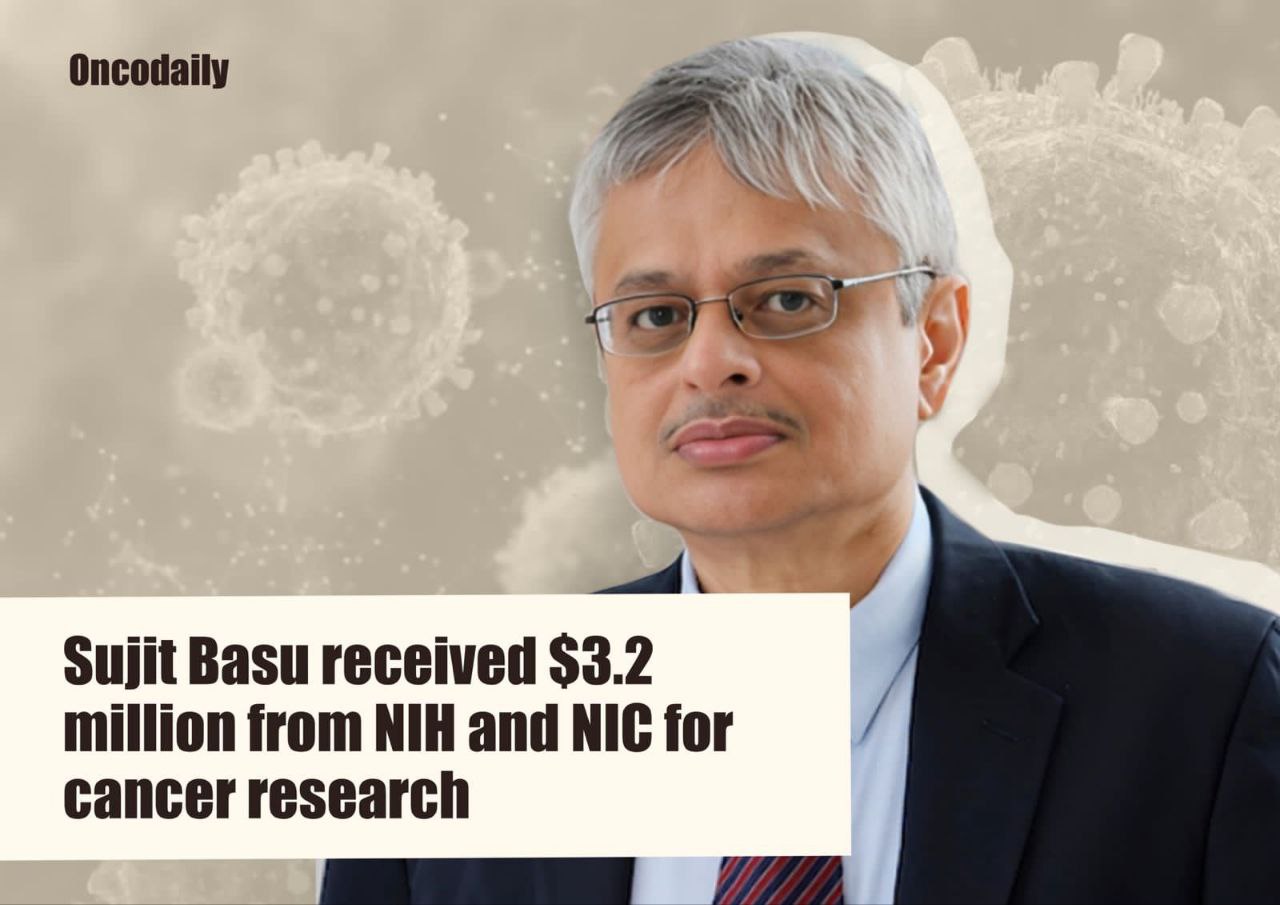
NIH Funds $3.2 Million Study on the Combination of Immune Blockade and Antiangiogenic Agents in Cancer Treatment
Sujit Basu, Professor of Pathology and Internal Medicine at The Ohio State University College of Medicine, has received a substantial $3.2 million grant from the National Institutes of Health (NIH) and the National Cancer Institute (NCI) to explore the therapeutic efficacy of combining immune blockade with antiangiogenic agents in the fight against cancer.
Normally, angiogenesis—the process by which new blood vessels form from preexisting ones—is a crucial part of bodily functions like wound healing and supplying oxygen to organs and tissues.
However, in the context of cancer, angiogenesis can have a detrimental effect.
Tumours exploit this process to generate a blood supply, which provides them with the nutrients and oxygen they need to grow and metastasize.
Dr. Basu’s groundbreaking research aims to explore innovative ways to target and block this process as part of a multi-pronged approach to fighting cancer.
Dr. Basu is focusing his efforts on the CD200-CD200R pathway. CD200R is an inhibitory receptor that, when activated, suppresses immune cell activity in the tumor microenvironment.
This suppression creates conditions that help tumors evade the immune system, thereby supporting tumor growth and spread. CD200 is an antitumor molecule, but by interacting with its receptor, it prevents immune cells from effectively attacking cancer cells.
By blocking the CD200-CD200R interaction, Dr. Basu and his team hope to enhance immune cell function within the tumor environment, increasing the body’s ability to fight cancer.
In addition to investigating immune blockade through CD200R inhibition, the study will also examine the potential of antiangiogenic therapies—drugs that target the blood vessels feeding the tumor.
Antiangiogenic agents work by cutting off the tumor’s supply of oxygen and nutrients, which limits its ability to grow.
By combining these two approaches—immune blockade and antiangiogenesis—Dr. Basu aims to create a more comprehensive treatment strategy that could work on multiple fronts to prevent tumor progression, invasion, and metastasis.
Dr. Basu notes that understanding the tumor microenvironment is critical for developing new therapies.
The microenvironment is a complex landscape made up of not only the tumor cells themselves but also surrounding non-cancerous cells, extracellular matrix components, and secreted cytokines.
This environment often helps tumors evade immune surveillance and fosters their growth. As such, any new cancer treatment must address this intricate network of factors.
The research supported by the NIH and NCI will assess how immune checkpoint inhibitors—drugs that block cancer cells from evading immune detection—and antiangiogenic agents can work together to create a hostile environment for tumors.
“Immune checkpoint inhibitors block the signals that help cancer cells evade the immune system,” explains Dr. Basu. “Antiangiogenic agents target the blood vessels that supply the tumor with nutrients and oxygen, limiting its growth.” By focusing on both immune modulation and restricting blood supply to the tumor, the study aims to uncover novel therapeutic strategies for cancer.
The ultimate goal of Dr. Basu’s research is to improve cancer treatment outcomes by providing more effective, early-stage interventions.
By blocking the mechanisms that allow tumors to grow and spread—such as immune suppression and angiogenesis—this combination therapy could lead to better response rates and a greater ability to tackle cancer at earlier, more treatable stages. Additionally, the findings could reveal new molecular and cellular mechanisms that could pave the way for more personalized and effective cancer therapies in the future.
This NIH-funded project represents an exciting step forward in cancer research, with the potential to not only enhance current treatments but also to pave the way for new, more effective strategies in the ongoing battle against cancer.
-
Challenging the Status Quo in Colorectal Cancer 2024
December 6-8, 2024
-
ESMO 2024 Congress
September 13-17, 2024
-
ASCO Annual Meeting
May 30 - June 4, 2024
-
Yvonne Award 2024
May 31, 2024
-
OncoThon 2024, Online
Feb. 15, 2024
-
Global Summit on War & Cancer 2023, Online
Dec. 14-16, 2023
